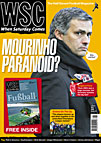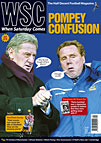 No goals, no away fans, only one proper team – fears of violence made the recent match between PSG and Marseille remarkable, as Neil McCarthy reports
No goals, no away fans, only one proper team – fears of violence made the recent match between PSG and Marseille remarkable, as Neil McCarthy reports
For their recent away match against Paris Saint-Germain, Olympique de Marseille travelled without supporters and fielded a B-team made up of reserves and youth-team players. The boring 0-0 draw was described as a winning hand for OM in a game of poker between the two clubs that has lasted for the past 15 years – they earned a point from PSG and spoilt a match broadcast on the TV station of PSG’s owners, Canal Plus. However, the media and the French League have played down the fact that the game was probably boycotted by OM simply because their fans are sick of risking their lives to go to the fixture, the league going so far as to dock both teams their point.
